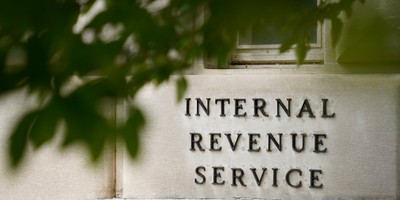“There’s nothing so permanent,” Milton Friedman famously said, “as a temporary government program.” For instance, I grew up in a rent-controlled apartment thanks to a temporary measure enacted during WWII. I was born nearly three decades after the war ended.
Let’s hope that the partial nationalization of America’s banking system isn’t equally “temporary.”
In a dramatic meeting Monday between Treasury Secretary Hank Paulson, Federal Reserve Chairman Ben Bernanke and the heads of the nine biggest banks, the U.S. government made the financial industry an offer it couldn’t refuse: Uncle Sam is buying big chunks of your banks whether you like it or not. Paulson didn’t say, “I can either have your signature on this contract or your brains,” the way Don Corleone explained things to Johnny Fontaine’s bandleader in “The Godfather,” but you get the picture.
Extraordinary crises sometimes require extraordinary measures. The danger is that the extraordinary could become merely ordinary.
Fannie Mae and related institutions were created during the New Deal to help expand homeownership. It was — and is — a laudable goal, and the government can point to some real successes, particularly when such programs were fundamentally conservative in their practices. But even then, the government was simultaneously subsidizing bad risks — hence making them seem less risky than they really were — while delaying the day when those toxic loans would reach critical mass.
Recommended
We’ve hit that day, and it has cost us trillions of dollars.
The Bush administration’s shock trauma team has been doing things they once considered unimaginable and even today find philosophically repugnant. But again, we do things to patients in an emergency that we would never do when they’re healthy.
The federal government’s mandatory quarter-trillion-dollar buy-in to the American banking system, we’re told, is a temporary measure. The terms of the loans rammed down the bankers’ throats are designed to encourage them to pay it all back within five years.
But who says those terms will stay that way? After all, the government now has a more real and explicit ownership position in these “private” banks than it ever did in Fannie and Freddie, which were so-called Government Sponsored Enterprises. More important, the Bush team is heading out the door. When the next squad comes in, they might discover they like being co-owners of America’s banking system.
Democrats in Congress had great fun using Fannie and Freddie as public policy piggy banks, rewarding constituencies, funding pet projects, forcing the private sector to dance to their tune. What’s to stop them from renegotiating this week’s deal after the election and using Bank of America, Wells Fargo, JPMorgan Chase and the others as Fannie Mae 2.0?
Please don’t say that the terms of the deal are set and the government can’t revise them. If there’s one thing the last month has hammered home, it’s that nothing is written in stone. Besides, the banks may grow to like the security of partial nationalization and even lobby to Congress to stay on as less-than-fully-silent partners.
Heck, that way they wouldn’t have to pay back the loans.
Barack Obama already has a strong record of sympathy for “public-private partnerships” and other schemes that put government in the driver’s seat. ACORN, the militant wing of the Democratic Party, has been trying to shake down banks for years, and Obama is on record as saying it and similar groups will have a major role in helping him craft policy. And it’s hardly reassuring that Barney Frank, Chris Dodd and Nancy Pelosi will be running Congress. It doesn’t seem crazy to suspect that a crowd that sees nationalization of health care as a vital public policy goal will not be dogmatically adverse to the nationalization of the credit markets.
John McCain is better about such things, but not by much. An avowed disciple of Teddy Roosevelt, McCain has a record of whipping the private sector — even Major League Baseball! — to do his bidding.
Teddy Roosevelt himself revised his faith in “trust-busting,” preferring instead to let big business grow bigger so long as it agreed to follow the orders of even bigger government.
In Wednesday’s night’s third presidential debate, CBS’s Bob Schieffer missed a vital opportunity to ask both candidates whether they would pledge not only to abide by the bailout’s sunset provisions but to further promise to get the government out of Wall Street as quickly as possible. Such pledges wouldn’t be legally binding, but they would help create political pressure from the right direction.
That didn’t happen. So now we’ll just have to trust that the politicians and Wall Street won’t mess things up. Anyone feeling good about that?

























Join the conversation as a VIP Member